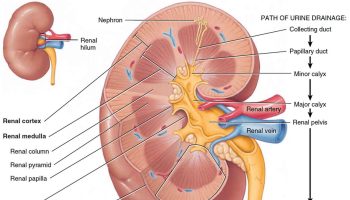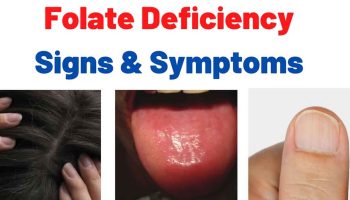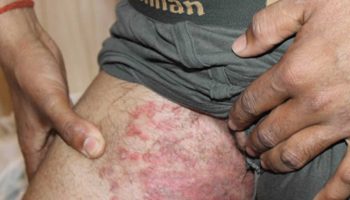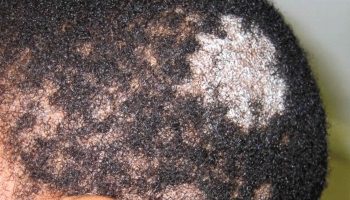Contents
What causes body odor
During puberty, your sweat glands become much more active than they were when you were younger and your body chemistry begins to change. You’ve probably noticed that you’re sweating more now than you were as a kid, especially in your armpits, groin, the bottoms of your feet, and the palms of your hands. Sweat comes from the areas of your body with the most sweat glands such as under your arms, the palms of your hands, the bottom of your feet, and between your legs. When your sweat comes into contact with bacteria on your skin, it can cause a smell – body odor.
Your skin has two main types of sweat glands: eccrine glands and apocrine glands. Eccrine glands occur over most of your body and open directly onto the surface of the skin. Apocrine glands develop in areas abundant in hair follicles, such as your armpits and groin, and they empty into the hair follicle just before it opens onto the skin surface.
When your body temperature rises, your eccrine glands secrete fluid onto the surface of your skin, where it cools your body as it evaporates. This fluid is composed mainly of water and salt.
Apocrine glands produce a milky fluid that most commonly is secreted when you’re under emotional stress. This fluid is odorless until it combines with bacteria found normally on your skin.
Body odor is natural and is usually caused by sweating.
Why do people sweat ?
Sweating is the body’s natural way of cooling itself off. When you are hot, when you’re exercising or playing sports, and when you’re nervous, stressed, or excited, you are likely to sweat more. This is your body’s way of regulating your inner temperature. Yes, it’s annoying, but sweating and body odor is not something to be afraid of. Sweating is actually very important because it prevents you from overheating by working as your natural air conditioner. As you get hot, your body sweats so that when the air touches your sweaty skin and dries up the moisture, your body cools down.
There’s nothing you can do to stop your body from sweating, but there are things you can do to keep clean and smell fresh.
If you notice that you’re sweating way too much, say, if the weather is mild, you’re not being active, and you aren’t nervous, excited, or stressed, talk with your health care provider. Hyperhidrosis (the medical term for excessive sweating) is usually a harmless (and treatable) condition, but is occasionally caused by an overactive thyroid, infection or diabetes. So it’s important to let your health care provider know if you’re sweating too much.
Sweating is actually good for you, and body odor can easily be prevented.
The best way to prevent body odor is by taking showers regularly and making sure to wash every part of your body. Plain soap and water is fine. There are no health benefits to using expensive soaps or body washes.
- Don’t rely on perfumes and sprays to cover up body odor. Because body odor is caused by a mix of bacteria and sweat, it’s important to use soap and water to kill the bacteria.
Here are some good hygiene tips that will help prevent body odor:
- Shower or bathe daily, and thoroughly dry your skin afterwards. Bacteria thrive in damp areas, so make sure to dry off after you shower.
- Apply deodorant or antiperspirant. Using deodorant or antiperspirant will help mask body odor, and/or decrease sweating.
- Wear clean clothes. Have you ever taken a whiff of your dirty gym socks? This might sound like a no-brainer, but dirty clothes can smell! Changing your clothes each day give you a fresh start. It also helps to wear clothing made of natural fibers (such as cotton or linen) because they absorb sweat better than other materials.
- Wearing cotton underwear and other natural fabrics. Man-made materials such as polyester, rayon and silk are not as breathable and can cause you to sweat more.
- Using a medicated foot powder or antifungal spray to prevent foot odor. It’s also important to air out sweaty athletic shoes/sneakers.
Getting rid of body odor usually isn’t hard as long as you practice good hygiene. If you find that keeping clean and wearing deodorant/antiperspirant still isn’t helping, talk with your health care provider. He/she may be able to write you a prescription for a stronger product.
Your doctor may prescribe aluminum chloride (Drysol, Xerac AC).
Prescription antiperspirants are strong solutions that can cause red, swollen and itchy skin in some people. If irritation develops, wash the medication off in the morning.
What’s the difference between deodorants and antiperspirants ?
- Deodorants control and cover up odor, usually with a scent or fragrance.
- Antiperspirants reduce wetness by drying up sweat.
Both deodorants and antiperspirants can come in many forms (sprays, sticks, powders, roll-ons, gels etc.) and can be scented or unscented. There are many different products to choose from. It’s up to you to use the product that you like best.
If you find that you have sensitive skin that is easily irritated, choose a product that has no scent or one that says “hypoallergenic” on it.
Are antiperspirants safe ?
Yes. Aluminum chlorohydrate is a substance that is used in most antiperspirants to reduce wetness. Some people might worry that it’s dangerous, but no research studies have shown that antiperspirants are unsafe.
When should I put on deodorant ?
Read the instructions on the product. Some products may say that they work best if applied in the morning, at bedtime, or right after taking a shower. It may also be a good idea to apply deodorant before working out or a doing physical activity that you know will make you sweat a lot. It’s a good idea to avoid using deodorant right after shaving your underarms as this may cause stinging and/or a rash.
I sweat a lot when I work out. Should I drink more water ?
Yes! When you sweat, your body loses water. Sweating is normal and it helps to regulate your body’s temperature however, if you lose too much water, you can become dehydrated. Dehydration can make you feel weak and tired, and affect your performance. Water is the best fluid to drink to stay hydrated however if you are very active for 60 minutes or longer, your body is likely also losing electrolytes (such as calcium, chloride, magnesium, phosphorus, potassium, and sodium). You’ll need to drink something in addition to water such as a sports drink that contains sodium and potassium.
Before exercise: Drink about 8-20 oz. of water about an hour before your work out so you will be well hydrated before you begin to use up energy. This amount will vary depending on your size/weight. One gulp = about 1 ounce of fluid.
During exercise: Drink about 4-6 oz. of water every 15 minutes. If you are exercising for less than an hour, drink water based on your thirst and the weather (if it’s hot or humid, you need more water).
After exercise: Drink 2 cups of water (16 oz).
If you think you sweat more than your friends when they are doing a similar activity or if you sweat when you are not active, see to your health care provider.
What about vaginal odor ?
You also have oil and sweat glands between your legs and on your vulva. They also become more active during puberty. This causes the area to feel moist and have a different smell than before.
What about vaginal deodorants, douches, and feminine sprays ?
Vaginal deodorants, douches and feminine sprays can cause redness, irritation and even yeast infections. Also, vaginal odor can be a sign of an infection, so using scented products may cause you to miss an important sign that there is something wrong. The good news is that your vagina naturally cleanses itself so you don’t need to buy special products to clean it. Washing your vulva and around your vaginal area with mild soap and water and changing your underwear regularly is usually all it takes in most cases to stop any odor.
- If you have strong-smelling vaginal discharge or bad vaginal odor, it could mean that you have a vaginal infection. See your health care provider.





